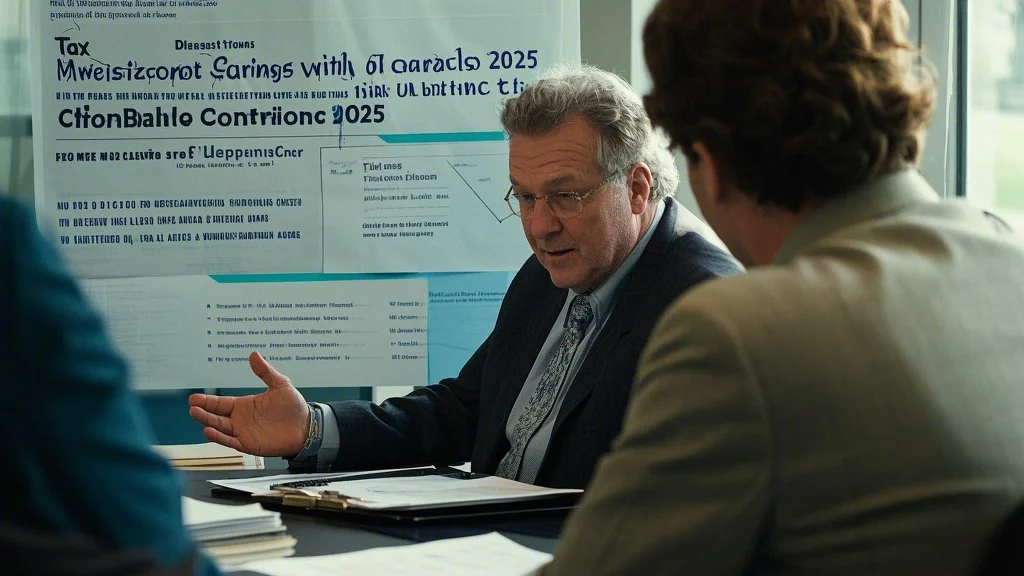Understanding the 2025 Tax Landscape
Navigating the evolving tax environment requires implementing smart tax efficiency strategies tailored to next year’s specific rules and thresholds. The 2025 tax year brings unique considerations as several provisions from the Tax Cuts and Jobs Act are set to expire, potentially altering brackets and deductions. Savvy taxpayers will monitor these pending changes while optimizing based on current laws. One often overlooked aspect involves strategically timing income and deductions across calendar years to smooth out tax liability. This approach becomes particularly powerful when combined with comprehensive smart tax planning that considers your multi-year financial picture. The standard deduction increases for 2025 may influence whether itemizing makes sense, while changes to retirement account contribution limits could open new opportunities for tax-deferred growth. Understanding these nuances helps create a proactive rather than reactive approach to annual tax obligations.
Maximizing Deductions Under 2025 Rules
Identifying all eligible tax deductions 2025 requires careful attention to both permanent and potentially expiring provisions. Charitable giving strategies remain particularly valuable, with donor-advised funds allowing current-year deductions for future distributions. Health Savings Accounts continue offering triple tax advantages for those with qualifying high-deductible health plans. The mortgage interest deduction, while limited, still benefits homeowners in higher tax brackets. These deductions work best when incorporated into broader tax optimization tips that consider your complete financial situation. Self-employed individuals and business owners have additional opportunities through retirement plan contributions, equipment purchases under Section 179, and qualified business income deductions. Keeping meticulous records and working with a tax professional can uncover deductions you might otherwise miss, particularly for home office use, medical expenses that exceed the AGI threshold, and state tax prepayments.

Investment Strategies for Tax Efficiency
Aligning your portfolio with sound tax efficiency strategies can significantly enhance after-tax returns. Tax-loss harvesting remains a powerful tool, allowing you to offset capital gains with realized losses while maintaining market exposure. Asset location – holding tax-inefficient investments like bonds in retirement accounts and tax-efficient equities in taxable accounts – minimizes annual tax drag. These approaches become essential components of wealth-building investments strategies designed for long-term growth. Municipal bonds continue offering tax-free income for those in higher brackets, while qualified dividends and long-term capital gains receive preferential tax treatment. Roth conversions during low-income years can provide valuable tax diversification, especially for those expecting higher future rates. Regular portfolio reviews should consider both performance and tax implications, as even small improvements in tax efficiency compound substantially over time.
Retirement Account Optimization Tactics
Retirement vehicles represent some of the most powerful tax optimization tips available to American taxpayers. For 2025, maxing out 401(k) and IRA contributions should be the first step for most earners, providing immediate deductions or tax-free growth. The catch-up contribution provisions for those over 50 help older workers accelerate retirement savings while reducing taxable income. These accounts work particularly well when coordinated with comprehensive smart tax planning that considers your current and expected future tax brackets. Health Savings Accounts offer unique triple tax advantages for qualifying individuals, functioning as super-charged retirement accounts when used for long-term savings. Required Minimum Distribution strategies, including qualified charitable distributions for those over 70½, can manage taxable income in retirement years. The key lies in viewing retirement accounts not just as savings vehicles but as integral components of your lifelong tax strategy.
Business Owner Tax Efficiency Strategies
Entrepreneurs and small business owners have additional opportunities to implement advanced tax efficiency strategies in 2025. Choosing the right business entity (LLC, S-Corp, etc.) continues to significantly impact self-employment taxes and deductions. Retirement plan options like SEP IRAs or Solo 401(k)s allow substantial contributions that reduce taxable business income. These approaches work best when incorporated into holistic wealth-building investments strategies that consider both business and personal finances. The Section 199A qualified business income deduction remains valuable for pass-through entities, while equipment purchases timed strategically can accelerate depreciation benefits. Family employment arrangements can shift income to lower-bracket family members, and health insurance premiums often qualify as deductible business expenses. Regular consultations with a tax professional can ensure you’re capturing all available industry-specific deductions and credits while remaining compliant with evolving regulations.
Year-Round Tax Planning Habits
Implementing consistent smart tax planning practices throughout the year yields better results than last-minute December strategies. Quarterly estimated tax payments help avoid penalties while smoothing cash flow. Maintaining organized digital records of expenses and potential deductions prevents year-end scrambling. These habits become essential components of effective tax optimization tips that reduce stress and improve outcomes. Tax gain-loss harvesting should be monitored regularly rather than just at year-end, as market conditions create ongoing opportunities. Charitable giving can be spaced strategically across years to maximize itemized deduction benefits. Regular check-ins with financial and tax advisors ensure you’re prepared for life changes that impact taxes – marriages, divorces, home purchases, or career transitions. Viewing tax efficiency as a year-round discipline rather than an annual event creates opportunities most taxpayers completely miss.



